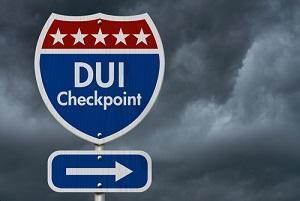DUI Checkpoints: What Are Your Rights?
 According to the National Highway Safety Administration, a person dies in a drunk driving-related accident every 50 minutes in the United States. In order to catch those who drink and drive, Illinois police sometimes use DUI checkpoints. These checkpoints usually involve some sort of roadblock which prevents motorists from passing. Police may stop vehicles and ask drivers to perform field sobriety tests or submit to chemical testing, such as a Breathalyzer test. Many individuals are unsure of what their rights are at a DUI checkpoint. Read on to learn what is expected of both motorists and police at these stops.
According to the National Highway Safety Administration, a person dies in a drunk driving-related accident every 50 minutes in the United States. In order to catch those who drink and drive, Illinois police sometimes use DUI checkpoints. These checkpoints usually involve some sort of roadblock which prevents motorists from passing. Police may stop vehicles and ask drivers to perform field sobriety tests or submit to chemical testing, such as a Breathalyzer test. Many individuals are unsure of what their rights are at a DUI checkpoint. Read on to learn what is expected of both motorists and police at these stops.
Probable Cause for Stopping Vehicles
If you are someone with a basic understanding of the law, you may have wondered how police checkpoints are even legal. After all, the U.S Constitution does have rules which prevent police from unreasonable search and seizure. The Fourth Amendment says that "The right of the people to be secure in their persons, houses, papers, and effects, against unreasonable searches and seizures, shall not be violated, and no Warrants shall issue but upon probable cause..." This right to be free from arbitrary seizure of property includes being pulled over while driving. Technically, a police officer does need probable cause to pull someone over and ask them to perform a sobriety test. However, in the case of DUI checkpoints, an exception has been made. The U.S. Supreme Court has determined that the intrusiveness of DUI checkpoints is outweighed by the benefit of decreasing the number of drunk drivers on the road.
Do I Have to Stop at Sobriety Checkpoints?
Motorists should not attempt to evade or drive through a DUI checkpoint without permission. Officers may wave your car through because they often do not stop every car, but if you are asked to stop, do not continue driving. Police can and will chase motorists who disregard their instructions at a roadblock. Though police are allowed to stop you temporarily, they may not legally search you or your vehicle unless you consent to the search or they have probable cause to believe that you are breaking the law. If the police detain you at a checkpoint and smell alcohol on your breath or you are otherwise displaying intoxicated behavior, they will ask you to submit to a field sobriety test and/or a chemical blood alcohol content test. Those who have been arrested on suspicion of driving under the influence (DUI) do have the right to refuse a blood alcohol test such as a Breathalyzer, however doing so results in their driver’s license being suspended for a minimum of one year – even if they are not found guilty of a DUI.
Have You Been Charged with a DUI?
If you have other questions about your rights and responsibilities during a DUI checkpoint, or for help with building a defense against a criminal charge, contact The The Law Office of Brian J. Mirandola. Call 847-488-0889 to speak with a skilled Elgin DUI defense attorney today.
Sources:
https://www.law.cornell.edu/supct/html/02-1060.ZS.html
http://www.illinoiscourts.gov/Opinions/AppellateCourt/2009/4thDistrict/February/4080422.pdf







